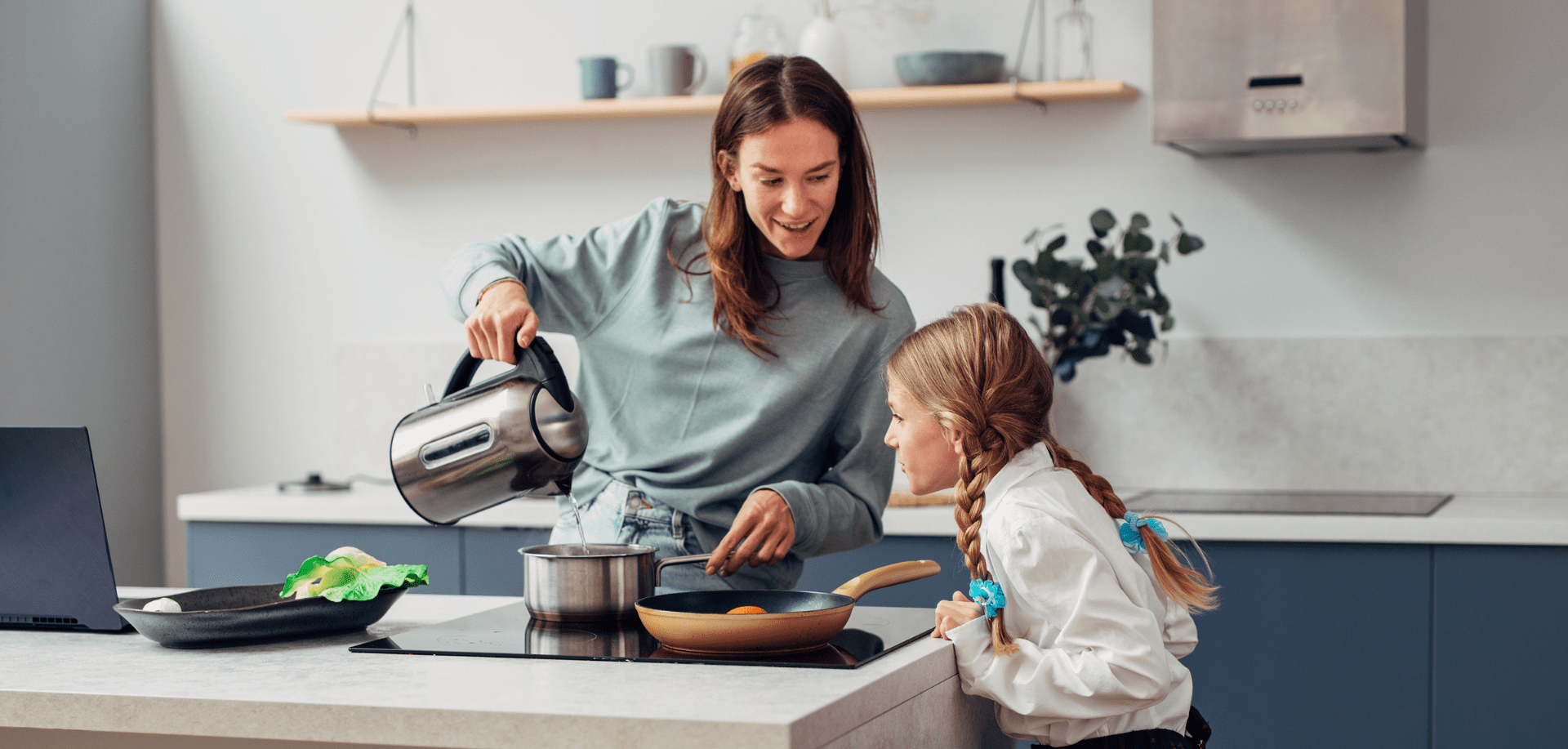
Remove Limescale from Your Kettle?
How to Descale a Kettle: Step-by-Step Guide
If your kettle is slow, noisy, or your tea tastes bad, it might be time for a clean. That white chalky stuff you see inside your kettle is limescale. It builds up fast, especially if you live in a hard water area. The good news? You don’t need to be a scientist to know how to descale a kettle. You can clean it using things you already have at home, and it only takes 10-15 minutes.
How to Clean a Kettle With Vinegar and Baking Soda
Here’s a simple method that works well without using any strong chemicals:
-
-
Step 1: Fill the kettle with water until it’s about three-quarters full. Then, add an equal amount of white vinegar (a natural limescale remover) or, if you prefer, instead of vinegar, toss in a few sliced lemons for a pleasant scent.
-
Step 2: Boil it – One boil does the trick with vinegar. With lemon, go for three.
-
Step 3: Cool and rinse – After it’s boiled, let it cool down. Pour it out. Rinse with fresh water a few times.
-
Step 4: One last boil – Fill it with clean water and boil again to get rid of any smell or aftertaste.
-
Step 5: Clean the outside – Grab a damp cloth, a little antibacterial spray, and give the outside a quick wipe. You’re done!
-
Some people use baking soda with water instead of lemon. It works in the same way and helps remove buildup too.
Commercial Descaling Products
If you don’t like the smell of vinegar or want something stronger, there are shop-bought kettle descalers. The best kettle descalers are made to break down limescale quickly and work well if you follow the instructions. The downside? They cost more over time and may leave a strange taste if you don’t rinse your kettle properly.
You still need to boil the kettle and rinse it well after using a descaler. Always read the label before you start.
Safety Tips When Descaling
Cleaning your kettle is simple, but still, here are some descaling solutions for your kettle to keep in mind:
-
-
Let it cool – Don’t open the kettle or pour out boiling water right after it boils. Let it cool a bit first.
-
Unplug before cleaning – Always unplug an electric kettle before wiping or rinsing it.
-
Don’t touch hot surfaces – The metal parts can get really hot, so give them time to cool.
-
Keep it away from kids – If you’re using vinegar or boiling the kettle, it’s safer to keep children away while you clean.
-
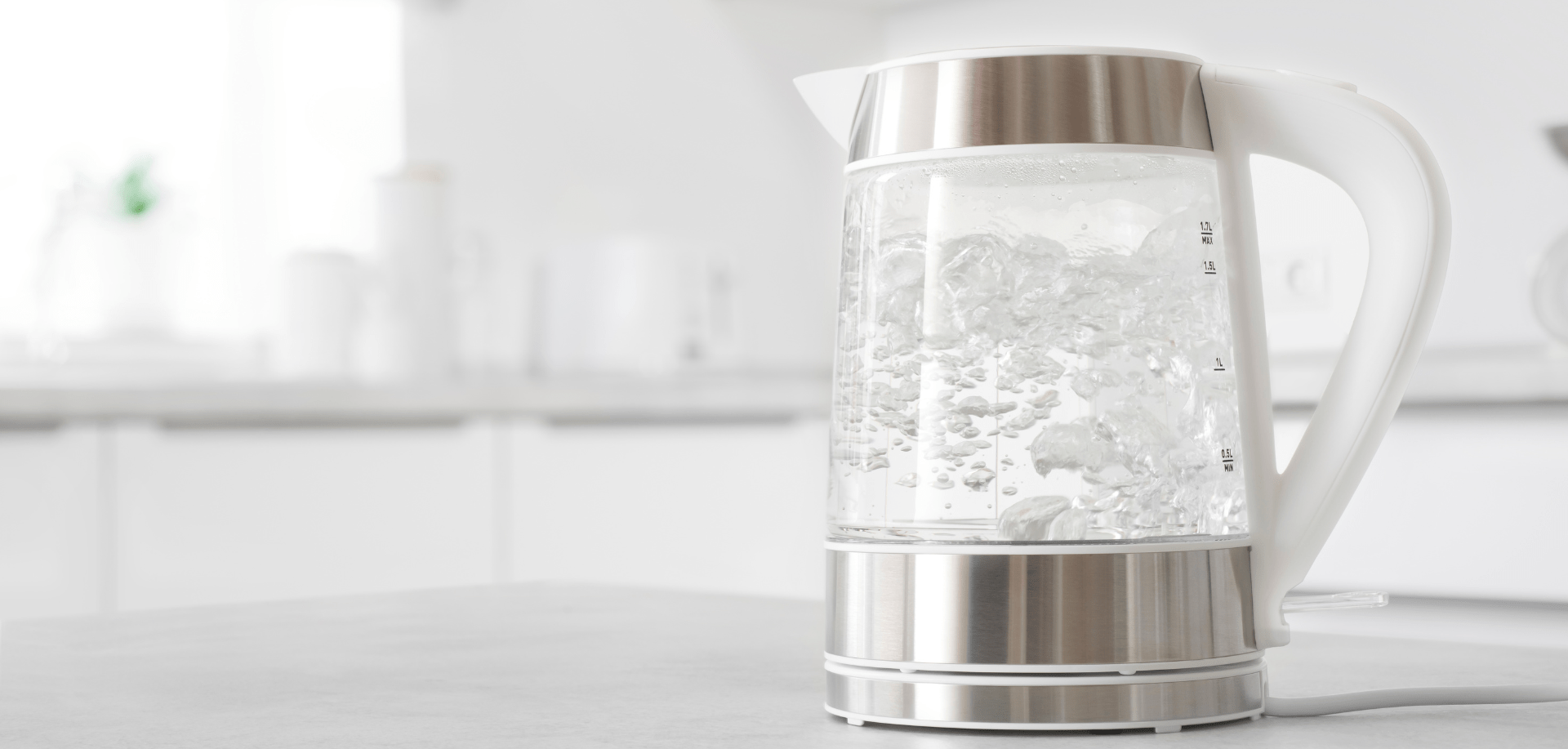
What Does Limescale Look Like
Limescale is the white, chalky residue that accumulates in kettles or coffee machines, particularly visible on stainless steel. This is a common problem in hard water areas, where there is a higher concentration of magnesium and calcium.
Removing it needn’t be a huge chore, though it does need to be done frequently to keep your kettle in top condition. Try using helpful tips, like the ones mentioned above, on how to clean limescale from your kettle and prevent it from building up.
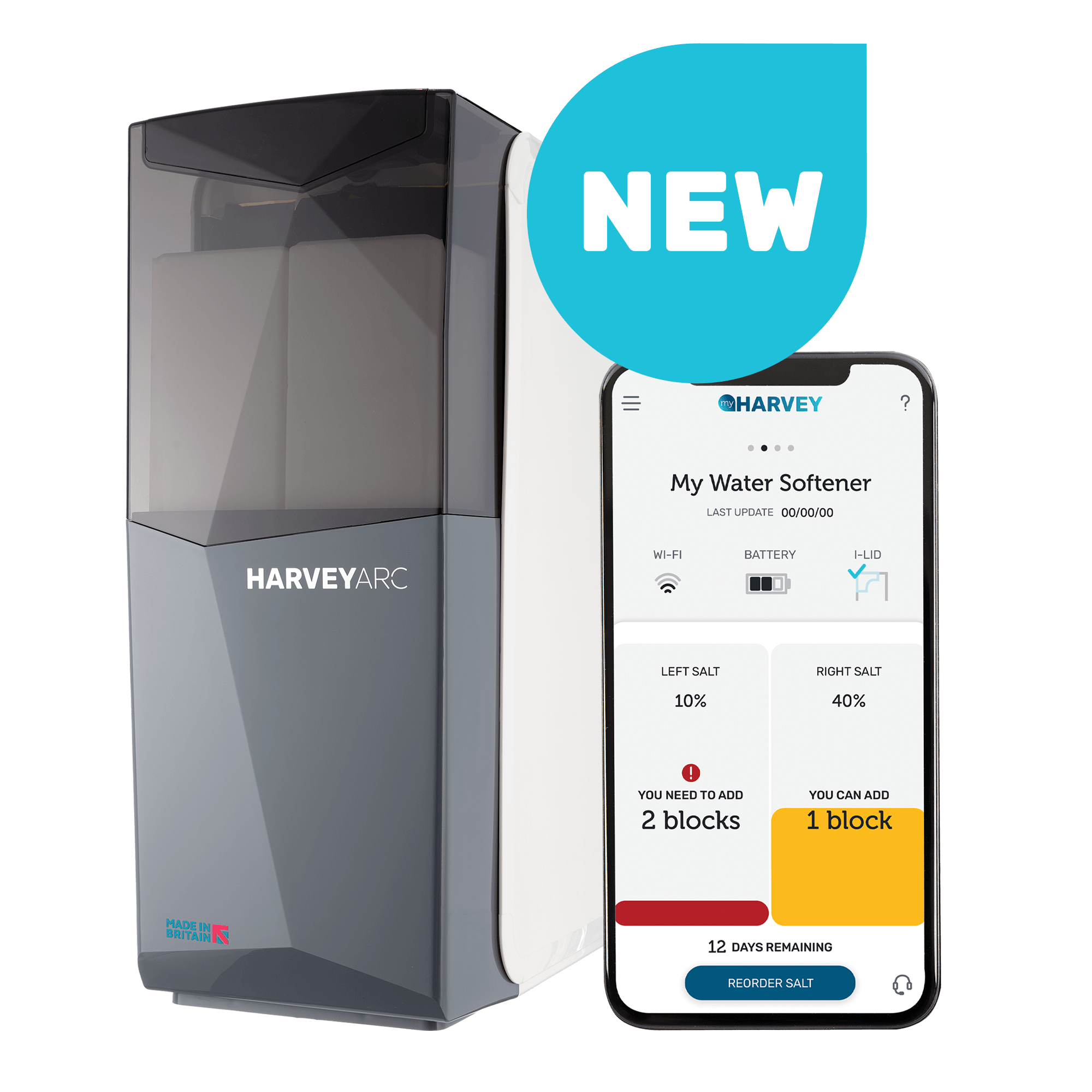
Benefits of Using Harvey Water Softeners
Installing a HarveyArc Water Softener can make your whole home feel cleaner. It’s compact, eco-friendly, and made in the UK to fit right under the kitchen sink.
-
Protect your appliances – With Harvey water softeners, you can stop damaging surfaces.
-
Improve water quality – Soft water makes everything taste better.
-
Less cleaning – No more removing limescale from the kettle or dealing with cloudy glass.
Do you need a water softener?
If it’s 100ppm or above, you have hard water. A water softener can help you avoid limescale buildup, saving time and money.
* PPM stands for parts per million and indicates the concentration of dissolved limescale minerals like calcium and magnesium in water.
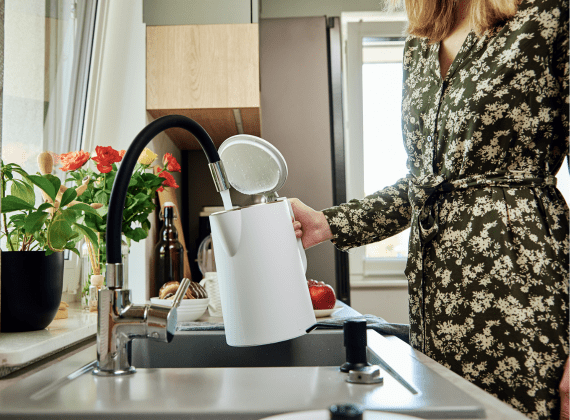
Best Practices to Prevent Limescale in Your Kettle

Regular Cleaning Frequency Tips
- Clean monthly – If you boil daily and have hard water, descale once a month.
- Use soft water – With a Harvey water softener, cleaning is needed less often.
- Empty after use – Don’t leave water sitting overnight, it speeds up limescale build-up.
- Wipe weekly – Give the outside a quick wipe once a week
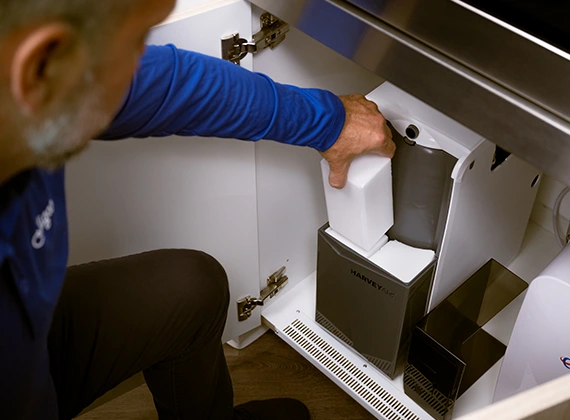
When to Descale Your Kettle
You can take good care of your kettle, but it still needs to be cleaned sometimes. Maybe the water looks a bit cloudy, or your tea just doesn’t taste right. If it starts making weird noises too, takes much longer to heat up your water, there’s a good chance limescale is building up inside. You might even spot white flakes in your drink or see a crusty layer inside. When that happens, it’s probably time to descale your kettle.
Savour the true essence of teas with Harvey Arc
High-quantity of limescale in your water can increase the levels of tea scum, altering flavours and healthiness of what you are drinking. HarveyArc is the solution.

- Bright and lively flavour with citrusy and floral notes
- Smooth and mellow texture
- Ideal to drink in the most elegant occasions

- The traditional essence of British tea
- Distinctive fragrance
- Perfect for cozy tea rooms and quaint cottages

- Aromatic citrusy note of bergamot
- Sophisticated aroma
- The best for a relaxing afternoon tea

- Robust and bold flavour
- Rich and malty aroma, with hints of sweetness and earthiness
- Perfect in every moment of the day
Is limescale bad for health?
Limescale comes from the high concentration of calcium found in the hard water we drink, so it will not cause you harm if you consume some from your kettle or coffee maker.
Kidney stones occur when there is a build-up of a substance in the body, such as calcium, ammonia, or cystine. However, there is no research which shows that drinking hard water increases your risk of developing kidney stones. In fact, you’re more likely to develop them if you’re not drinking enough water, so it’s worth keeping your kettle in top condition and brewing up!
Frequently Asked Questions
All starts with a virtual demo
Learn how to improve your water in only 60 minutes
Request your free personalised quote today!